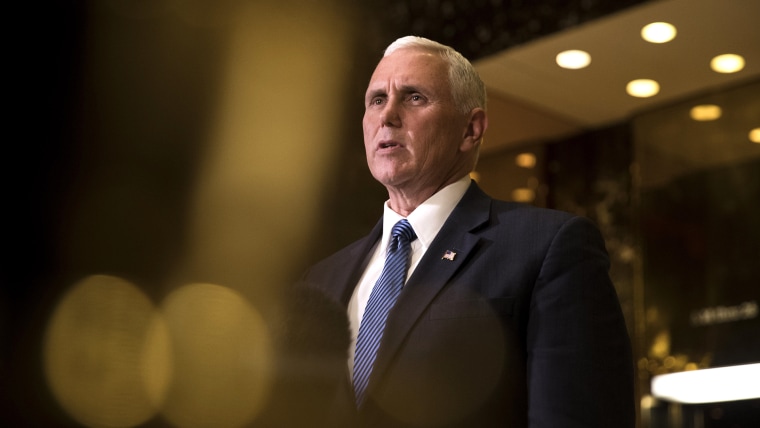Top members of Donald Trump's national security and foreign policy team went to Capitol Hill yesterday afternoon to deliver an important briefing. Members of Congress, including some Republicans, had questions about the rationale behind a U.S. airstrike that killed Iranian Gen. Qassem Soleimani, touching off a crisis in the region, and this was lawmakers' opportunity to get some answers.
The result was a surprising amount of bipartisan criticism, with a variety of lawmakers complaining that the briefing was vague, hollow, and short -- cut off before many members could even ask questions.
Vice President Mike Pence argued this morning that lawmakers might've been unimpressed because the administration withheld sensitive information, even during classified congressional briefings.
On NBC's "TODAY," Pence told Savannah Guthrie that the administration could not provide Congress with some of the "most compelling" intelligence behind the administration's decision to kill Soleimani because doing so "could compromise" sources and methods."Some of that has to do with what's called sources and methods," Pence said. "Some of the most compelling evidence that Qassem Soleimani was preparing an imminent attack against American forces and American personnel also represents some of the most sensitive intelligence that we have -- it could compromise those sources and methods."
In other words, administration officials made closed-door presentations with classified information, but they left out the really sensitive information. That, according to Pence, may help explain the dissatisfaction on Capitol Hill.
I'm not in a position to say whether the vice president is correct or not. It's conceivable that there's highly sensitive intelligence that the administration isn't prepared to share with hundreds of lawmakers. {The standards for the Gang of Eight are different; nothing is too sensitive for these officials.) It's also possible that Team Trump made its best pitch, it fell short, and Pence is pointing to hidden intelligence that doesn't really exist.
Either way, the bottom line remains the same: Pence simply wants people to trust Donald Trump. There's "compelling evidence" to justify the president's dangerous gambit, but no one can see it, and we should just take the White House's word for it.
Similarly, Sen. Lindsey Graham (R-S.C.) told reporters yesterday that lawmakers, including some of his GOP colleagues, who balked after yesterday's briefing are "empowering the enemy."
At the root of the senator's argument is the same dubious pitch that Pence peddled: Trump deserves the benefit of the doubt. To question the president's decision, Graham suggested yesterday, is to undermine U.S. national security interests.
What's unclear is why in the world anyone would take such an argument seriously. Donald Trump hasn't just engaged in uncontrollable lying throughout his brief political career, but the Trump administration has struggled to keep its story straight about the airstrikes in question, offering competing and contradictory explanations for why the president risked a war.
To see Trump as credible is to ignore everything we've seen, heard, and learned in recent years. To see Trump as credible on life-and-death national security matters is folly.
